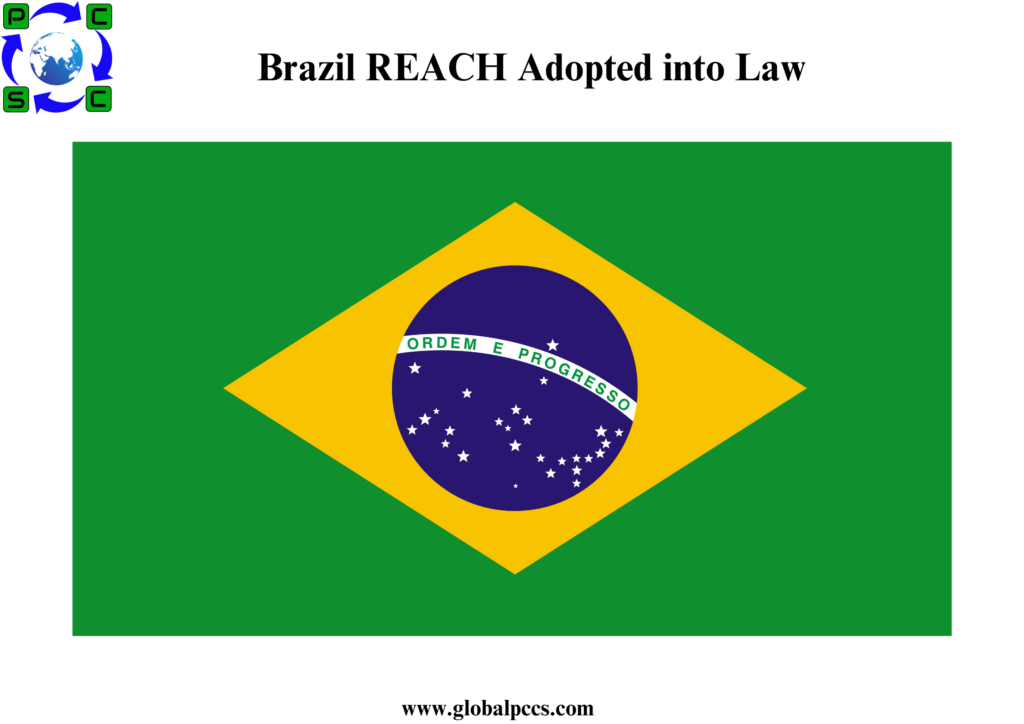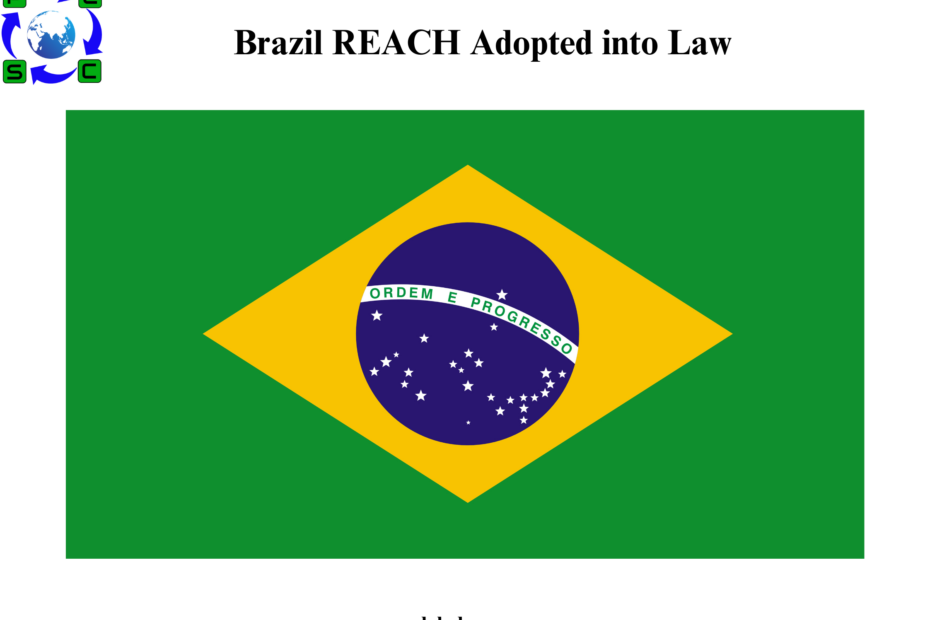 Brazil REACH’s registration deadline will be no later than November 14, 2030.
Brazil REACH’s registration deadline will be no later than November 14, 2030.
On November 14, 2024, the President of Brazil sanctioned Brazil’s chemical law (Law No.15, 022), also known as “Brazil REACH”. The law establishes the National Inventory of Chemical Substances and the assessment and risk control of chemical substances used, produced or imported in the national territory, with the aim of minimizing adverse impacts on health and the environment.
With the framework for chemical management in place, the government now has 180 days to formulate implementing regulations that elaborate details left open in the law. The official has announced that the National Commission for Chemical Safety (CONASQ) will be put in charge of the development of the draft.
Scope
Generally, the Law applies to all chemical substances used, produced or imported in Brazilian territory. The following are excluded from the application scope:
- Radioactive substances
- Chemical substances under development
- Chemical substances intended exclusively for research
- Non-isolated intermediates
- Substances used in national defense
- Waste
- Chemical substances, mixtures and articles subject to customs supervision
- Substances resulting from unintentional chemical reaction during storage
- Products regulated under specific legislation (food and additives, manufacturing technology adjuvants, medicines, pesticides, cosmetic, sanitizing agents, substances for veterinary use, substances intended for animal feed, fertilizers, inoculants and correctives, wood preservatives, environmental remediators, etc.)
- Ores and their concentrates, natural substances, fat, essential oils and fixed oils, glass, frits and ceramics
- Narcotic, psychotropic substances and immunosuppressive substances
- Used exclusively as ingredients for tobacco and derivatives
- Metal alloys in the form of sheets, foils, strips, billets, ingots, beams and similar products for structural purposes
- Explosives and their accessories.
Registration
Brazil REACH will require all manufacturers and importers of chemicals produced or imported in quantities over 1 ton per year to register in the National Registry of Chemical Substances. The registration shall apply to chemical substances, chemical substances used as ingredients in mixtures as well as polymers (except those of low-concern).
Note: Chemical substances of unknown or variable-UVCB composition must be registered as a single chemical substance.
Timeline
Companies will have 3 years from the launch of the National Registry to register their existing substances. Taking into account the maximum of 3 years for the authorities to develop the system, the registration deadline will be somewhere between November 14, 2027 up to November 14, 2030.
The National Inventory of Chemical Substances (INSQ) will be formed after this registration deadline. Any chemical substance that is not listed will be considered a new chemical substance, which when produced or imported in quantities over 1 ton per year, shall be registered before entering into the market.
Local representative
For foreign manufacturers exporting to Brazil, they are allowed to appoint an exclusive representative in the region to carry out the tasks imposed on importers, which is similar to the EU “Only Representative” mechanism.
Risk assessment and further risk management measures
The chemical substances listed in INSQ and new chemical substances will be selected and prioritized for risk assessment to human health and the environment. Manufacturers and importers may be requested to provide additional information to support the risk assessment.
Based on the risk assessment results, the Deliberative Committee on Chemical Substances may determine the relevant risk management measures like restriction, authorization and prohibition.
Action for industries
Companies may first assess the chemical products exported to Brazil to determine if they are under the scope of new law. Following this, they should stay updated on any developments regarding registration specifics related to the new law, and devise their registration strategy accordingly.








 Authorised IMDS & CDX Training & Consulting partner for
Authorised IMDS & CDX Training & Consulting partner for






